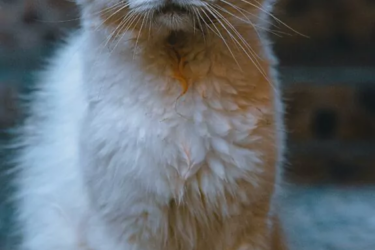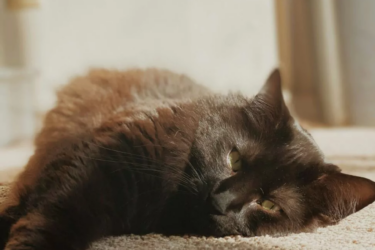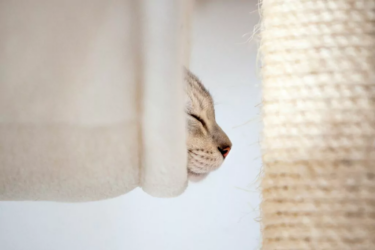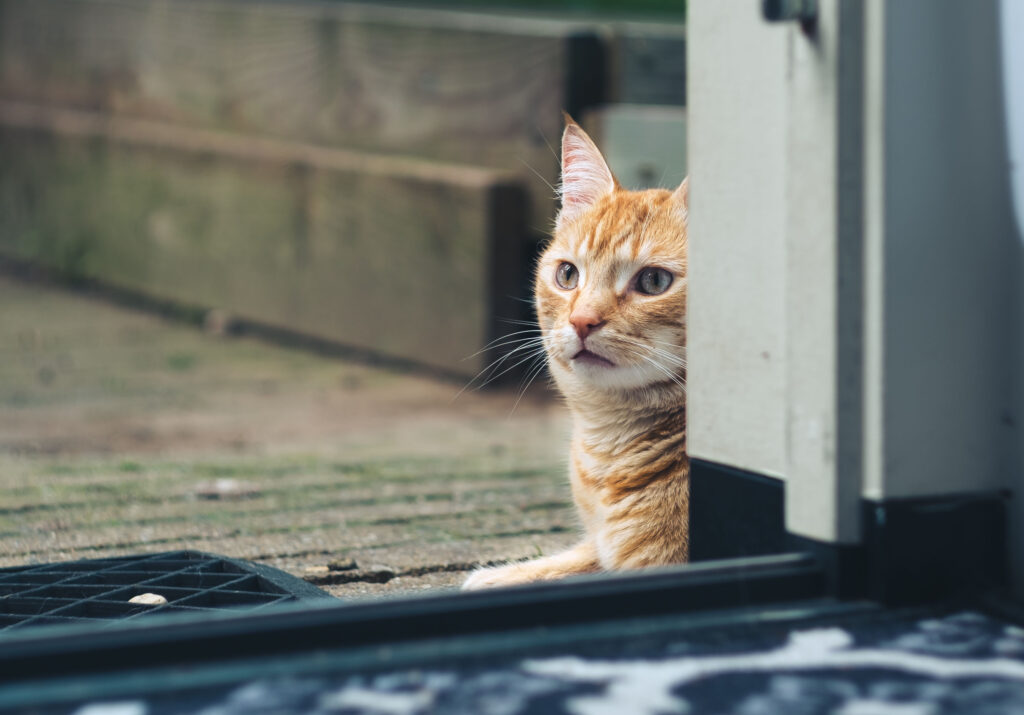
Most people have a domestic cat. A ‘regular cat’ often (incorrectly) referred to as a European Shorthair. Here we’ll tell you all about these super cute cats that come in all sorts of shapes, sizes, and colors. Are you reading along?
- The difference between a domestic cat and a European Shorthair
- Characteristics of the domestic cat
- The coat of a domestic cat
- The personality of the domestic cat
- Care for the domestic cat (make subheadings bold and smaller)
- Health of the domestic cat
- How old do domestic cats get?
1. The difference between a domestic cat and a European Shorthair
The domestic cat is often called a European Shorthair, but that’s incorrect. The European Shorthair is a recognized cat breed from Sweden that is specially bred and always has a pedigree. So, a European Shorthair is a purebred cat. The domestic cat, on the other hand, is often born in a domestic setting and does not have a pedigree. That’s the ‘regular cat’ as we often encounter them.
These cat trees will make your cat very happy!
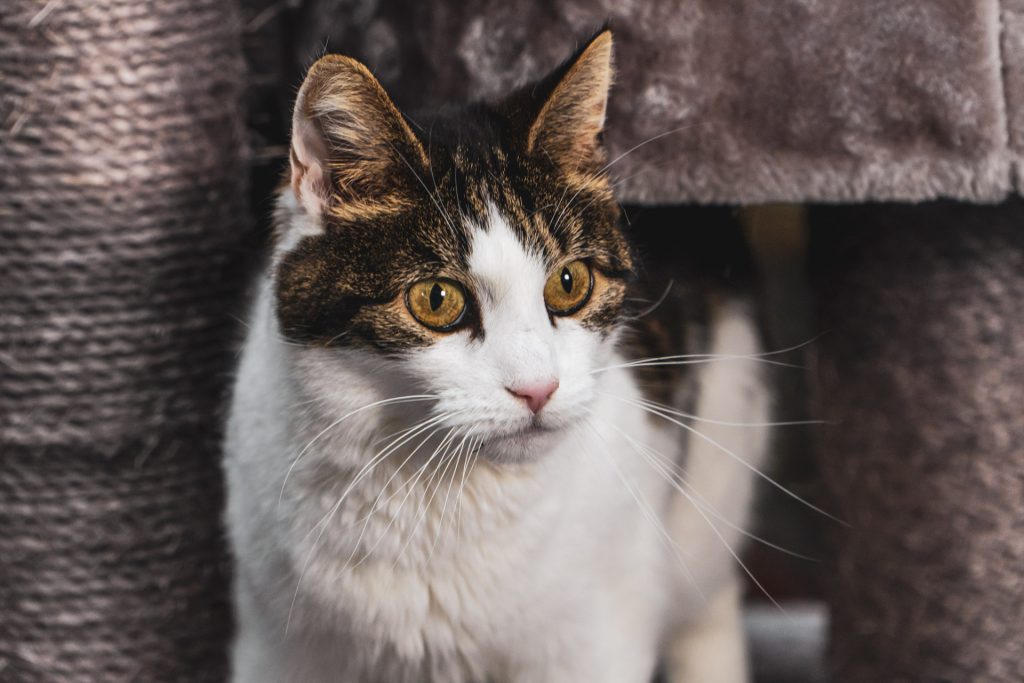
2. Characteristics of a housecat
It is often not known who the parents are of domestic cats and therefore there are no specific characteristics for these cats. They have many different types – they can be large or small, muscular or slim and short-haired or (partly) long-haired. Everything is possible with a house cat!
3. The coat of a domestic cat
When it comes to coat color, anything is possible – completely black, white, red or gray, tabby, spotted, or the well-known tortoiseshell or calico. The coat of the domestic cat is generally short. If one of the cat’s parents is long-haired, that can be passed down to the kittens. For example, a kitten might suddenly have a beautiful plume tail or tufts on its ears.
4. The personality of the domestic cat
Unfortunately, little research has been done on the personalities of cats. However, it is known that the father’s genes are the most dominant, so they are often passed on to the kittens. Because domestic cats are not specifically bred, their personalities are always a surprise: they can be calm, active, lazy, confident, or even insecure. That’s why it’s important to choose the right cat trees for the house cat, where it can rest comfortably or play.
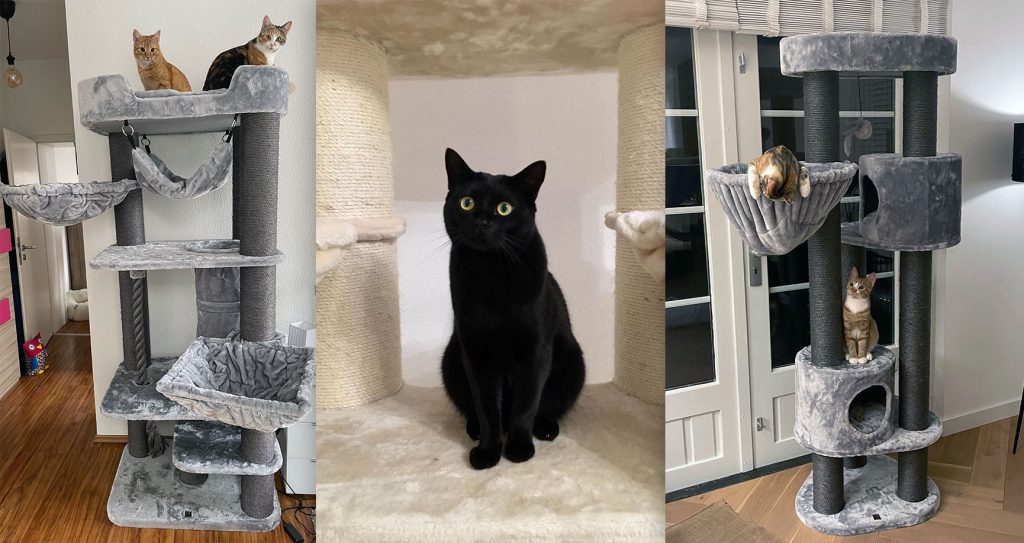
5. Care for the domestic cat
A cat is a clean and smart creature. Generally, you don’t need to worry much about the care of a domestic cat. However, there are a few things that are very important to do.
Coat Care
Even short-haired cats shed, so it’s good to brush your cat once a month. This will make the coat shine beautifully and help prevent hairballs.
Nail care
If a cat goes outside, its claws usually wear down on their own. Indoor cats’ claws grow longer and sharper more quickly. Therefore, always provide a good scratching post at home, as this will allow your cat to maintain its claws on its own. However, you should still trim the claws every now and then. If you find this difficult, visit the vet.
Dental care
Cats also sometimes need to go to the dentist. Regularly check your cat’s teeth. Is the gums red, is there tartar on the teeth (yellow or brown clumps), or has a tooth been broken? In that case, you should visit the vet, as they can determine if anything needs to be done.
General care for a domestic cat
Additionally, it’s important to have your cat sterilized, as this is better for their health. And not unimportantly, it prevents unwanted reproduction. Regular deworming and protection against fleas and ticks are also necessary. Just like microchipping and registering—if a cat gets lost, a microchip ensures the owner can be quickly located.
Even cats sometimes need to go to the dentist. So check your cat’s teeth regularly. Are the gums red, is there tartar on the teeth (yellow or brown lumps) or has a tooth broken off? Then you should go to the vet, as they can see if anything needs to be done about it.
Other than that, you care for a domestic cat like any other cat (text continues below the photo), with:
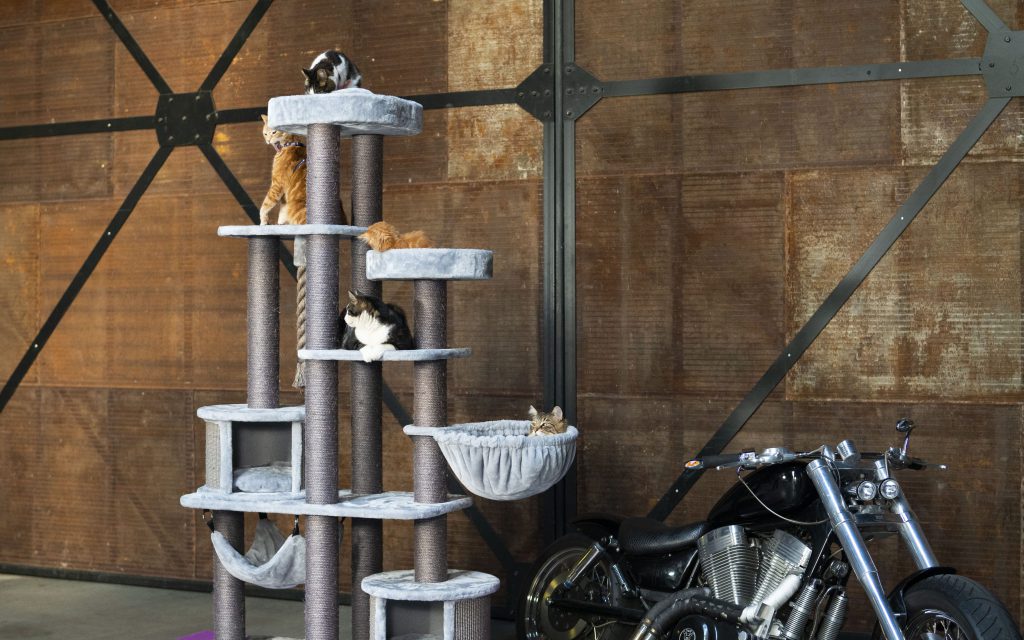
- A safe and clean home
- A warm sleeping place, such as a cat tree with hammocks
- Or a cozy scratching barrel
- Good food that suits the breed
- Fresh water in several bowls every day
- Protection against parasites (such as worms, fleas, and ticks)
- Love, attention, and playtime with the owner
- A companion cat at home
- Care when the cat is sick
- A reliable pet sitter when you go on vacation
- Clean litter boxes with good litter
- Fun and challenging cat toys
- Regular visits to the vet
6. The health of a domestic cat
The domestic cat is not specifically bred for unique characteristics. As a result, domestic cats are often healthy. However, even a domestic cat can get sick. Keep this in mind when bringing a domestic cat into your home – care, medication, and visits to the vet also cost money.
If you want to bring a healthy cat into your home, ask a vet for advice. You can also consult the websites of Dier & Recht and the Dutch Food and Consumer Product Safety Authority, as they provide information about cats.
Always buy a kitten from a reliable source, as this ensures the cat is healthy, well-socialized, and well cared for. Ask questions and check the kitten’s parents. Also, take a look at the environment: is it clean and homely, and are the parents present? That’s a good sign. Don’t buy cats through Marktplaats, eBay, or from unlicensed breeders.
And realize: you don’t have a cat for just a short time, but for its entire cat life. Are you willing to take good care of the animal and set aside money for care and vet visits? If so, a cat might just become your new best friend!
Discover here what the care of a cat roughly costs
7. How old does a domestic cat get?
Regular domestic cats can live quite a long time – on average, a cat lives to be 14 years old. And 25% of cats live to be over 17 years old. However, it’s important for the cat to:
- Have a safe home
- Receive healthy food
- Be able to move and play freely
- Be well cared for by its owner
- Be lucky with its genes
The oldest cat ever was a female named ‘Creme Puff’. She holds the record in the Guinness Book of Records for living an impressive 38 years. She was born in 1967 and passed away on August 6, 2005.
Read more here about the sweet Ragdoll
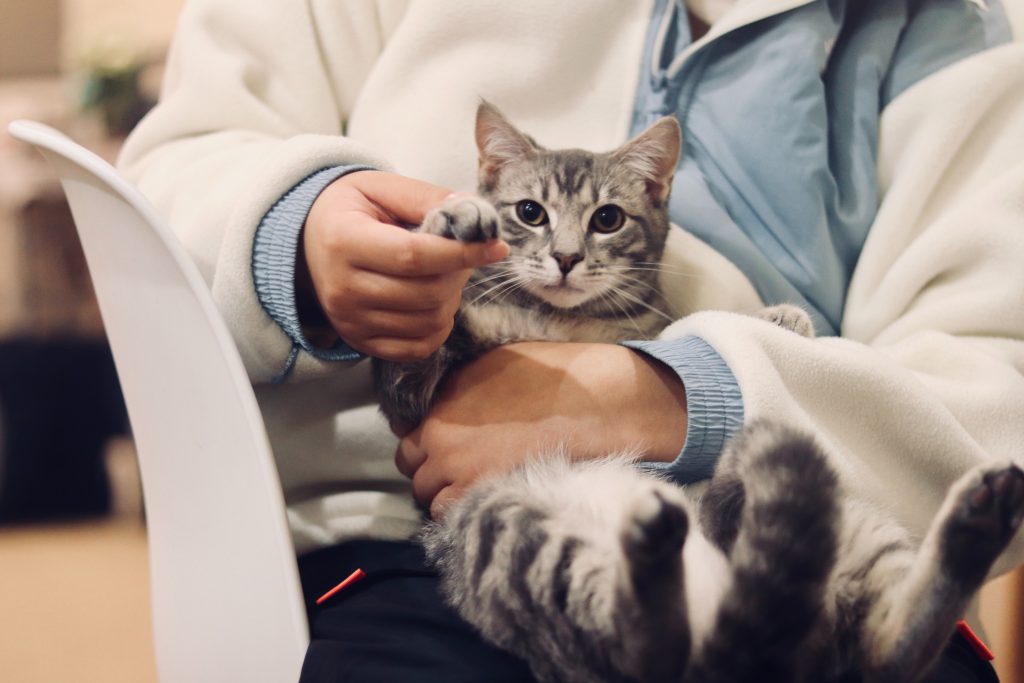
Disclaimer: Petrebels does not consist of veterinarians or behavioral experts: all content, information and tips on this blog are intended to inspire and inform you. Does your cat have complaints or problems and do you have doubts about your cat’s health? Then always go to the vet or a behavioral expert.
